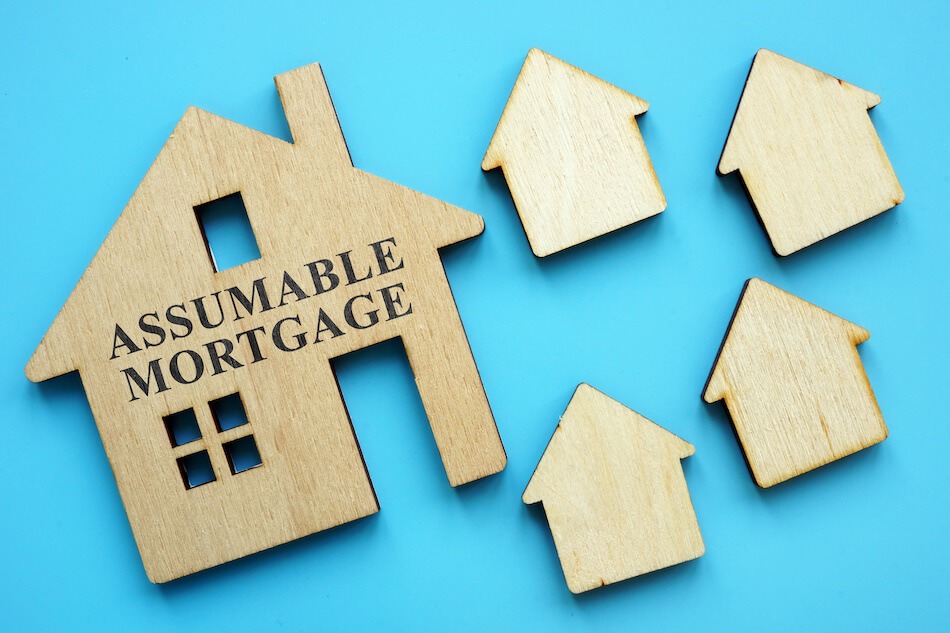Get A Quote

Assumable Mortgage 101: Why They Work Even When Rates are High
Current interest rates are hovering around 7%, and with housing prices still relatively high, many buyers are looking for alternate ways to afford their dream home. Knowledgeable real estate agents understand how to navigate the current market, and one way is using VA and FHA assumable loans.
How VA and FHA Assumable Loans Work
An assumable mortgage allows someone to find a house and take over the seller’s existing mortgage loan without applying for or having to get a new mortgage. This means the remaining balance of the seller’s loan, their mortgage rate, repayment terms and other loan terms stay the same—but the responsibility for the debt is transferred to the buyer. If the house has gained market value since the original seller’s loan was secured, the buyer will need to cover that difference at closing. This means at closing the buyer pays in cash to the seller the “equity” in the seller’s house. The buyer then takes over the payments to the seller’s lender.
For example, if the seller has a $400,000 loan balance on a $600,000 home, the buyer will need to bring $200,000 to the table to compensate the seller for their equity in the home. The seller’s mortgage is then transferred to the buyer and the buyer takes over the payments to the seller’s lender.
What Real Estate Professionals Need to Know About Assumption Requirements
These assumable loans are a great marketing tool for sellers who want to attract buyers to their home that have the cash to pay the equity and then assume the very low interest rate. There are rules, however, that govern the process so the real estate professionals should make sure that they are familiar with the different assumption requirements.
- First, it is generally government loans – VA and FHA – that are assumable. Some conventional loans may be assumable under certain circumstances such as adjustable-rate mortgages (“ARM”), but Fannie Mae will control the buyer restrictions when the assumption transaction closes.
- For FHA loans, the seller’s lender must approve the sale and assumption of the loan by the buyer. —If it is an arm’s length transaction—not due to a death or inheritance—then the seller’s lender will check the buyer’s credit in order to approve the assumption.
- For VA loans if the seller’s loan was originated before March 1, 1988, it is “freely” assumable, and no one has to approve it nor is the lender allowed to check the buyer’s credit. If the seller’s VA loan was originated after that date, then assumption is allowed with the lender’s approval and a check of the buyer’s credit. It is important to note that even though the seller has a VA loan reserved for veterans the assuming buyer does not need to be a veteran to qualify.
- One final important point is that if you are representing the seller who is allowing a buyer to assume their loan you need to ensure that FHA or VA has released your seller from liability for the loan in the event that the buyer would default down the line. Additionally, for VA sellers they will want to make sure that they have gotten back all of their VA eligibility in order for them to be free to buy a new home with a VA loan.
The bottom-line is, FHA and VA Assumable Loans can be appealing to certain buyers and sellers, and as real estate professionals we need to understand how to advise our clients about this option.
Velocity Title Moves Your Business Forward
Velocity Title supports the real estate industry with a comprehensive line of title services that add value to each and every transaction. With a focus on the best CUSTOMER EXPERIENCE, Velocity Title incorporates leading title TECHNOLOGY and EXPERTISE into every transaction—enabling the final step in the home buying process to be EASY, EFFICIENT and INFORMATIVE. To learn more, visit our website or contact us today!



